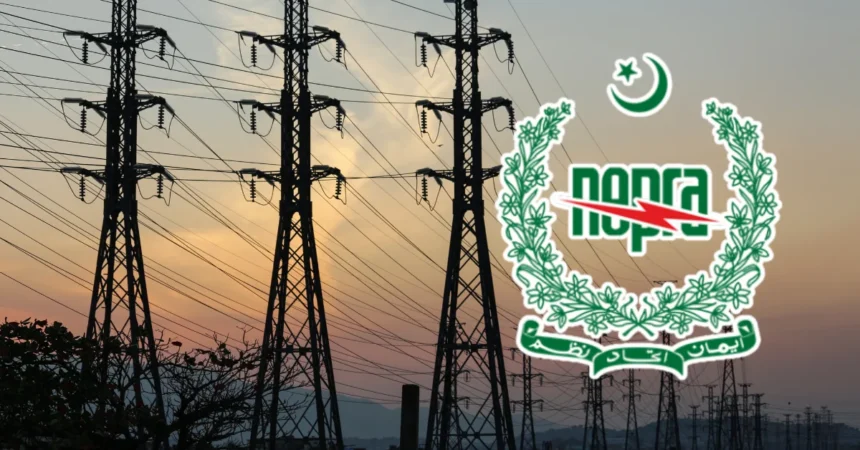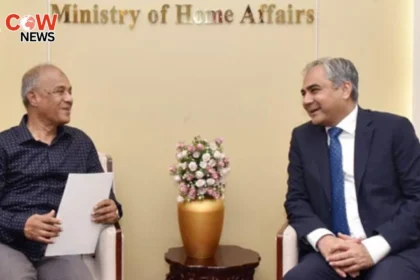The National Electric Power Regulatory Authority (Nepra) has recently introduced significant changes to its policies regarding late payment surcharges for electricity consumers. This decision marks a notable shift in the regulatory framework that governs electricity billing in Pakistan, aiming to alleviate financial burdens on consumers while enhancing revenue collection for utility companies.
Overview of the New Late Payment Policy
Under the newly established policy, the late payment surcharge (LPS) has been fundamentally restructured. Previously, consumers who failed to pay their electricity bills by the designated deadline faced a 10 percent surcharge. This practice often led to increased financial stress for households, particularly those already grappling with economic difficulties. The revised policy now allows for a grace period of three days after the payment deadline, during which no late fee will be applied.
Rationale Behind the Policy Change
The rationale for this change stems from ongoing consumer feedback highlighting the strain that late fees can impose, especially during financially challenging times. By granting a brief extension without penalties, Nepra aims to promote timely payments while ensuring consumers are not unduly penalized for unforeseen circumstances. This approach is seen as a way to foster goodwill among consumers, encouraging them to settle their bills promptly.
Implications for Consumers
Greater Flexibility in Payment
The most immediate benefit for consumers is the increased flexibility regarding bill payments. The new three-day grace period provides much-needed breathing room for families who may face unexpected financial challenges, such as medical emergencies or job loss. This adjustment allows consumers to avoid incurring additional charges, thereby reducing the overall cost of electricity during difficult times.
Introduction of Online Bill Management
In conjunction with the new late payment policy, the Lahore Electricity Supply Corporation (LESCO) has implemented an online billing system. This development aims to streamline the payment process and make it more accessible to consumers. By transitioning to a digital platform, consumers can easily view their bills, track their electricity usage, and make payments without the need for physical visits to utility offices.
Convenience of Online Payments
The online system is expected to enhance consumer convenience significantly. With just a few clicks, consumers can pay their bills, ensuring they remain within the grace period without the hassle of manual payment processes. This digital transformation is particularly beneficial for tech-savvy consumers who prefer online transactions over traditional methods.
Process for Requesting Payment Extensions
While the new policy allows for a three-day grace period, consumers who require additional time to settle their bills can request extensions from the revenue department. This provision is designed to accommodate those who may face extended financial difficulties, ensuring they are not penalized while they manage their payments.
Steps for Requesting an Extension
1. **Contact the Revenue Department**: Consumers must reach out to their local revenue department, either by phone or online, to initiate a request for an extension.
2. **Provide Relevant Information**: When submitting the request, consumers will need to provide essential details, including their account number and the reasons for seeking an extension.
3. **Await Confirmation**: The revenue department will review the request and communicate its decision to the consumer. If approved, this extension allows additional time for payment without incurring late fees.
Context of Electricity Billing in Pakistan
Historical Background
Electricity billing in Pakistan has long been a contentious issue, fraught with challenges including inaccurate meter readings, billing disputes, and high rates of non-payment. Many consumers have expressed frustration over what they perceive as arbitrary late fees, contributing to a climate of mistrust between consumers and utility providers.
Previous Surcharge Structure
Under the previous policy, the application of a 10 percent late payment surcharge was intended to encourage timely payments. However, this approach often resulted in increased financial pressure on consumers, leading to higher instances of non-compliance and billing disputes. Recognizing these challenges, Nepra’s new policy seeks to strike a balance between revenue generation for utility companies and the financial realities faced by consumers.
Economic Context
Impact of Economic Conditions
Pakistan’s economy has faced numerous challenges in recent years, including inflation, currency devaluation, and rising unemployment rates. These economic conditions have compounded the difficulties faced by consumers in managing their electricity bills. The new late payment policy reflects an understanding of these broader economic realities and aims to provide consumers with a more manageable approach to bill payments.
Importance of Consumer Trust
Building and maintaining consumer trust is crucial for the long-term sustainability of utility companies. By adopting a more lenient late payment policy, Nepra is signaling a commitment to fostering better relationships between consumers and service providers. This shift is essential for encouraging timely payments and reducing the rates of non-compliance.
Broader Regulatory Framework
Role of Nepra
Nepra plays a vital role in regulating electricity supply and pricing in Pakistan. Its decisions impact both utility companies and consumers, making it imperative that the regulatory body remains responsive to the needs of the public. The introduction of a more consumer-friendly late payment policy is indicative of Nepra’s evolving approach to regulation.
Collaboration with Utility Companies
The implementation of the new policy is a result of collaborative efforts between Nepra and utility companies like LESCO. By working together, these entities can address consumer concerns while also ensuring the financial viability of electricity providers. This partnership is critical for developing effective solutions that benefit all stakeholders.
Future Outlook
Expected Changes in Consumer Behavior
With the introduction of the three-day grace period and the online billing system, there is an expectation that consumer behavior regarding bill payments will shift positively. The convenience of online payments, coupled with the leniency of the new policy, is likely to encourage more consumers to pay their bills on time, ultimately benefiting both consumers and utility providers.
Long-term Goals for Revenue Collection
Nepra’s long-term goals include improving revenue collection while maintaining a consumer-friendly approach to electricity billing. By implementing policies that are responsive to consumer needs, the regulatory body aims to create a sustainable system that supports both utility providers and consumers.
Addressing Consumer Concerns
Ongoing Communication
To ensure the success of the new policy, ongoing communication between Nepra, utility providers, and consumers is essential. Regular feedback from consumers can help identify any issues or challenges that arise from the new billing structure, allowing for timely adjustments as necessary.
Enhancing Transparency
Transparency in the billing process is crucial for building consumer trust. Utility companies must provide clear information regarding billing cycles, payment deadlines, and the implications of late payments. By enhancing transparency, utility providers can foster a more positive relationship with consumers.
As Nepra rolls out these new initiatives, it remains committed to addressing the challenges faced by consumers while ensuring the financial sustainability of utility companies. The new late payment policy, coupled with the introduction of online billing, represents a significant step toward a more consumer-friendly approach to electricity management in Pakistan.







